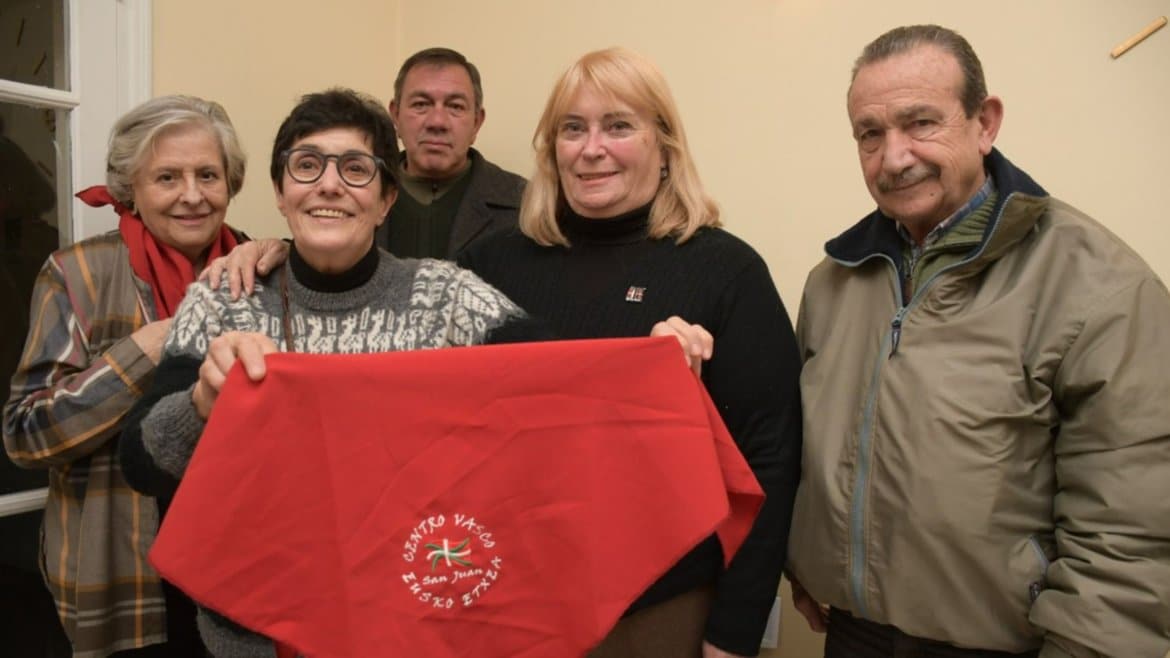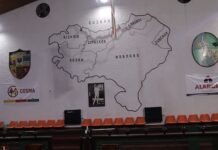Journalist Ana Paula Gremoliche has published an article in the newspaper Huarpe about the role of the Basques in the province of San Juan, in Argentina. For those of us who don’t live in Argentina, San Juan is located at the foot of the Andes, just to the north of another province where the Basque presence is strong, but also “hard to see”, Cordoba.
And we say “hard to see” because the journalist herself has labeled the Basques of San Juan to be an “invisible group,” especially given the starring role they’ve played in the founding and development of that part of Argentina. Though perhaps we should say “all of Argentina,” as we’ve been saying over the years.
This situation regarding the lack of knowledge, or recognition, of the Basque community is something that is far too common. It is almost always caused by the fact that “everything Basque” is diluted between things that are Spanish and French. These two nation-states divvied up our nation a long time ago. It’s hard for the societies which have taken us in over the centuries to clearly distinguish the role the Basques have played in their history. Though, it must be said, it’s not hard to hear the use of a “Basque” surname to refer to, and categorize, the descendants of this national community in Argentina.
In the article, we can see not only how significant the Basque presence has been in the history of San Juan, but also the important role being played today by its Basque center, the Centro Vasco Eusko Etxea San Juan, which is carrying out amazing, worthy work in order to preserve the spirit of the Basque community and to help preserve and share Basque culture.
There are two things that caught our attention in this article.
On the one hand, there is the reference to a very important but rather unknown reality: the emigration that took place from the whole of the Basque Country in the 19th century to escape the draft. The French Revolution in the Northern Basque Country and liberalism in the Southern Basque Country imposed obligatory military service on young Basque men, that is to say, it forced them to go to war. That had never happened before in our country. It went against all tradition, and the whole way of being of Basque society, and thousands of young Basque men from both sides of the Pyrenees preferred to abandon their homeland rather than serve an army whose country they didn’t feel a part of.
The other thing that caught our eye was the choice of words that are identified as being of Basque origin. We hadn’t recognized them as such.
But beyond these specific examples, what is undeniable is the influence the Basque language has had on the Romance languages surrounding it (cf the well-known affirmation by Claudio Sánchez Albornoz that “Spanish is just Latin as poorly spoken by the Basques”). Examples such as the disappearance of the f sound in certain Spanish words (Latin “ferrum” became French “fer” and Galician “ferro”, but “hierro” in Spanish, with a silent h). There is a long list of Basque influences in the development of the Spanish language, which is now integrated into it and has made it to the present. It’s unlikely that an Argentine, when saying the Spanish word for “left,” izquierda, is actually saying a Basque word, ezkerra; nevertheless, it’s true.
So we must thank the Basque communities organized all over the world for their hard work in keeping their roots strong and for sharing the reality of Basque culture and society with their adopted homelands.
We must also be grateful that there are media outlets willing to share it and to make the Basques the protagonists in their own stories.
Diario Huarpe – 13/6/2022 – Argentina
Los vascos: la colectividad invisibilizada que formó parte de la fundación de San Juan
Hay colectividades que, con sus idiosincrasias y culturas, se mezclaron tanto con San Juan que, actualmente, es muy difícil diferenciarlas del resto. Este es el caso de la colectividad vasca, que participó de la fundación de la provincia misma, de departamentos y de localidades sanjuaninas. A pesar de que habitaron e integraron el territorio desde hace siglos, no se los tiene muy presentes como colectividad. En medio de la conmemoración del aniversario 460 de la fundación de “San Juan de la Frontera”, DIARIO HUARPE estuvo con representantes del Centro Vasco Eusko Etxea San Juan, quienes resaltaron la importancia de la comunidad en la creación de la demarcación como tal.
(Follow) (Automatic translation)
Last Updated on Jun 16, 2022 by About Basque Country





